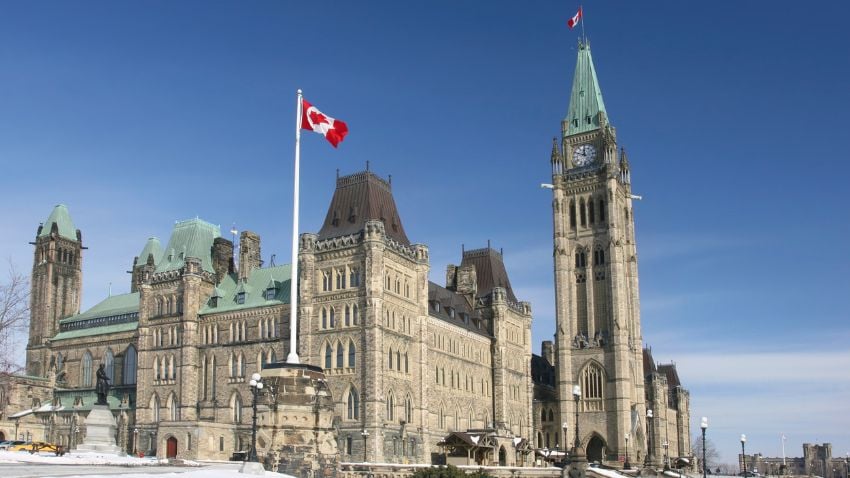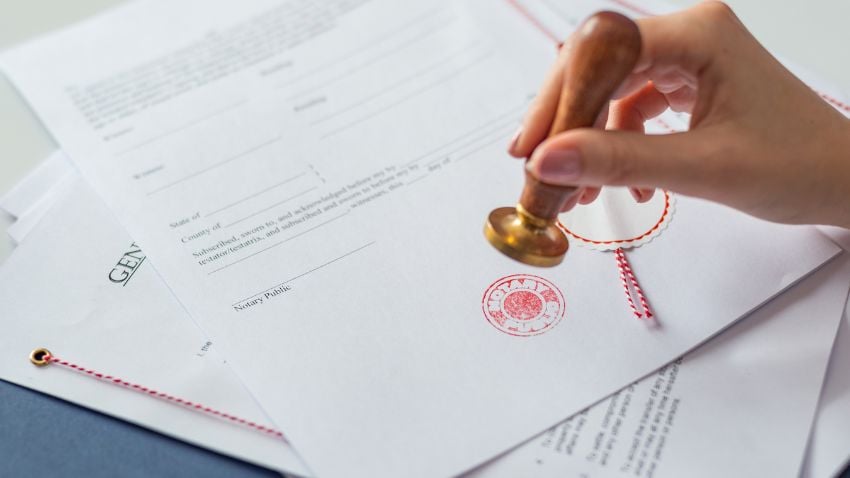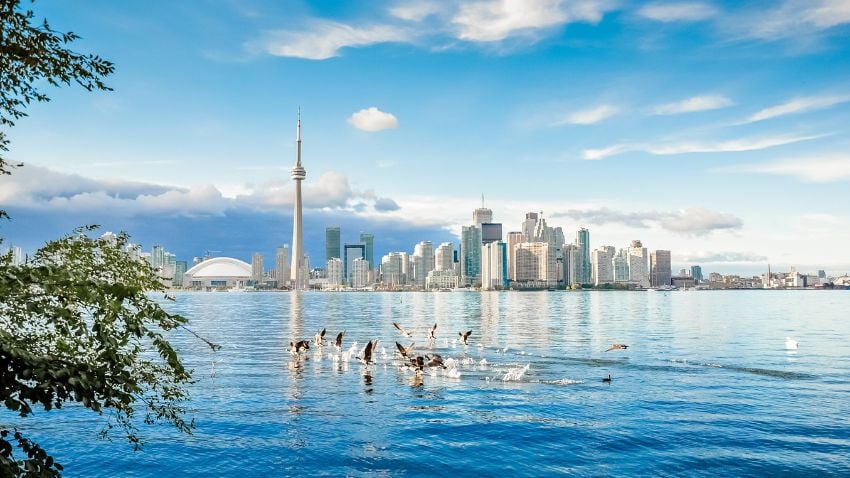Top Things To Do In Panama In 2026
Panama’s geographic size is modest, but its global relevance is not. The country connects two oceans and two continents, operates on a dollarized...

4 min read
Canadians looking to use official documents abroad just got some good news. As of January 11, 2024, Canada joined the Apostille Convention, a major international treaty that simplifies the process of getting your documents accepted in over 120 countries.
Canada's engagement with the Hague Apostille Convention marks a pivotal shift in how documents are authenticated for international use. This transition from traditional legalization processes to the Apostille system promises to ease cross-border legal, educational, and business activities significantly.
Drawing from Global Affairs Canada's guidelines, this article delves into the changes to authentication services, the types of documents eligible for an apostille, and practical steps for obtaining apostille in Canada.
Authentication, sometimes referred to as apostille, is the process of verifying the legitimacy of a government document. This verification assures foreign countries that the signature on your document, such as a birth certificate or educational credential, is genuine.
Previously, getting documents authenticated often involved a lengthy and complex procedure, sometimes requiring additional legalization steps from provincial or territorial authorities.
The Apostille Convention streamlines this process. With Canada's accession to the treaty, a single apostille issued by Global Affairs Canada will be sufficient for documents intended for use in any other member country. This eliminates the need for further legalization, saving you time and money.
Related content: What Is An Apostille, And How Do I Apostille Documents?

Authentication services in Canada
The Apostille Convention simplifies the authentication of documents to be used abroad, affecting various services:
Authentication Services Section at Global Affairs Canada: This body will transition from providing traditional authentication to issuing apostilles for eligible documents;
Authentication at Canadian Offices Abroad: Canadian offices overseas, like embassies, high commissions, and consulates, might also help you with document authentication, just like the Authentication Services Section back home does. These offices can handle many types of documents, including those from any Canadian province or territory's Vital Statistics office. If you're wondering whether the Canadian office closest to you offers these services, it's best to get in touch with them directly and ask. However, it's good to keep in mind that Canadian offices in the United States usually don't provide authentication services;
Provincial Competent Authorities: Certain documents may be authenticated by provincial authorities designated to issue apostilles.
Global Affairs Canada will issue apostilles for a wide range of public documents, including:
Personal Documents: Birth, marriage, and death certificates; adoption papers;
Educational Documents: Diplomas, transcripts;
Legal Documents: Court orders, judgments, and notarized agreements;
Corporate Documents: Articles of incorporation, financial statements.
Provincial Competent Authorities may also issue apostilles for specific documents, adhering to provincial regulations.

Vancouver, Canada
For Newly Authenticated Documents: Submit your document to the Authentication Services Section at Global Affairs Canada or a designated provincial authority, specifying the need for an apostille;
Already Sent Documents for Authentication: If your documents are currently with Global Affairs Canada and you require an apostille, contact them to adjust your request;
Withdrawing a Request for Authentication: To switch your request to a provincial Competent Authority, contact Global Affairs Canada to withdraw your submission.
Notarized documents should be sent to the Authentication Services Section at Global Affairs Canada or the respective provincial competent authority, depending on the type of document and the issuing authority.
If you're looking to redirect a document authentication request from Global Affairs Canada to a provincial authority capable of providing authentication and an apostille, here's what to do:
For requests currently with Global Affairs Canada that you'd like to move to a provincial office for authentication, simply drop an email to the Authentication Services Section at docs@international.gc.ca. Make sure to include the essential details.
Your email should be structured as follows:
Subject Line: Simply put "Request to withdraw";
Email Body: Include the applicant's name as it's shown on the envelope and the service request form (EXT2165), the mailing date of your document and its delivery date if known, any tracking code (for documents sent via registered mail), and the return address you'd like your documents sent back to.
Documents will be sent back using the return method you initially provided. If you originally included a prepaid envelope or shipping label for forwarding to an embassy or consulate after authentication, that will be used to return them to you. If you didn't include a prepaid return method but now want your documents returned via courier, you can purchase a prepaid shipping label online and attach it to your withdrawal request email. Otherwise, documents will be returned by regular mail.
For documents initially sent to Global Affairs Canada with instructions to forward them to the consular or diplomatic office of a country part of the Apostille Convention. Still, if you now want them back, follow these steps:
Send an email to the Authentication Services Section at docs@international.gc.ca using the contact information provided on the service request form (EXT2165). Your email should be organized as follows:
Subject Line: Write "Request to change return address";
Email Body: Mention the applicant's name as listed on the envelope and service request form (EXT2165), the date you mailed your document and the delivery date if known, any tracking code (for registered mail), and the new return address.
The return process mirrors the initial method you chose. If your original submission included a prepaid method for after-authentication forwarding, this will be utilized for the return. If you now prefer courier return but didn't initially provide a prepaid option, simply buy a prepaid shipping label online and include it with your request. Without a chosen prepaid option, your documents will be sent back by standard mail.

Apostilles can be verified through the issuing authority to confirm their authenticity
In Countries Party to the Apostille Convention: Once your document bears an apostille, it is recognized by all member countries without further legalization;
In Non-Signatory Countries, Documents will still require traditional authentication and legalization by the respective embassy or consulate;
Foreign Documents in Canada: Documents apostilled by other Convention members are accepted in Canada without additional authentication.
Verification: Apostilles can be verified through the issuing authority to confirm their authenticity. To verify an apostille issued with a certificate number starting with CA-, AB-, SK, or -59- send an email to apostille@international.gc.ca and include the following information:
Certificate number;
Date of issuance;
To verify an apostille with a certificate number starting with ON-, check Ontario’s Official Documents Services website;
To verify an apostille issued by the Competent Authority of Quebec, check Quebec’s Registre des apostilles (in French only);
Electronic Apostilles: Some jurisdictions may offer e-Apostilles, providing a digital alternative to paper apostilles.
Documents from Signatory Countries: They are readily accepted in Canada and other member countries with the apostille;
Using Canadian Documents in Non-Signatory Countries: Continue following traditional legalization procedures;
List of Countries Where the Apostille Convention is Not in Effect: As of December 2023, check the Global Affairs Canada website for an updated list to understand where the apostille process is not applicable.

Toronto, Canada
The implementation of the Apostille Convention in Canada represents a significant advancement in international document authentication. By understanding the changes, preparing documents appropriately, and utilizing the apostille service, Canadians and residents can enjoy a more streamlined, efficient process for international document use. As Canada integrates into this global system, individuals and businesses alike stand to benefit from enhanced mobility, simplified processes, and greater ease in cross-border transactions.
If you want the best intel from the expat world, including profitable offshore opportunities, little-known tax-saving strategies, and hard-won insights on immigration, passports, and Plan-B residencies, all delivered to your inbox every single week, then join our daily correspondence, EMS Pulse®. Currently enjoyed by over 84,000 expats and expat-hopefuls worldwide. Fill in the form below to join our newsletter free:

Written by Mikkel Thorup
Mikkel Thorup is the world’s most sought-after expat consultant. He focuses on helping high-net-worth private clients to legally mitigate tax liabilities, obtain a second residency and citizenship, and assemble a portfolio of foreign investments including international real estate, timber plantations, agricultural land and other hard-money tangible assets. Mikkel is the Founder and CEO at Expat Money®, a private consulting firm started in 2017. He hosts the popular weekly podcast, the Expat Money Show, and wrote the definitive #1-Best Selling book Expat Secrets - How To Pay Zero Taxes, Live Overseas And Make Giant Piles Of Money, and his second book: Expats Guide On Moving To Mexico.

Panama’s geographic size is modest, but its global relevance is not. The country connects two oceans and two continents, operates on a dollarized...

Honduras’ newly elected president, Nasry Asfura of the conservative National Party, was sworn in on January 27, 2026. The election, held on November...

For a growing number of Americans, cost-of-living math no longer works. Housing feels harder to reach, everyday costs keep climbing, and long-term...